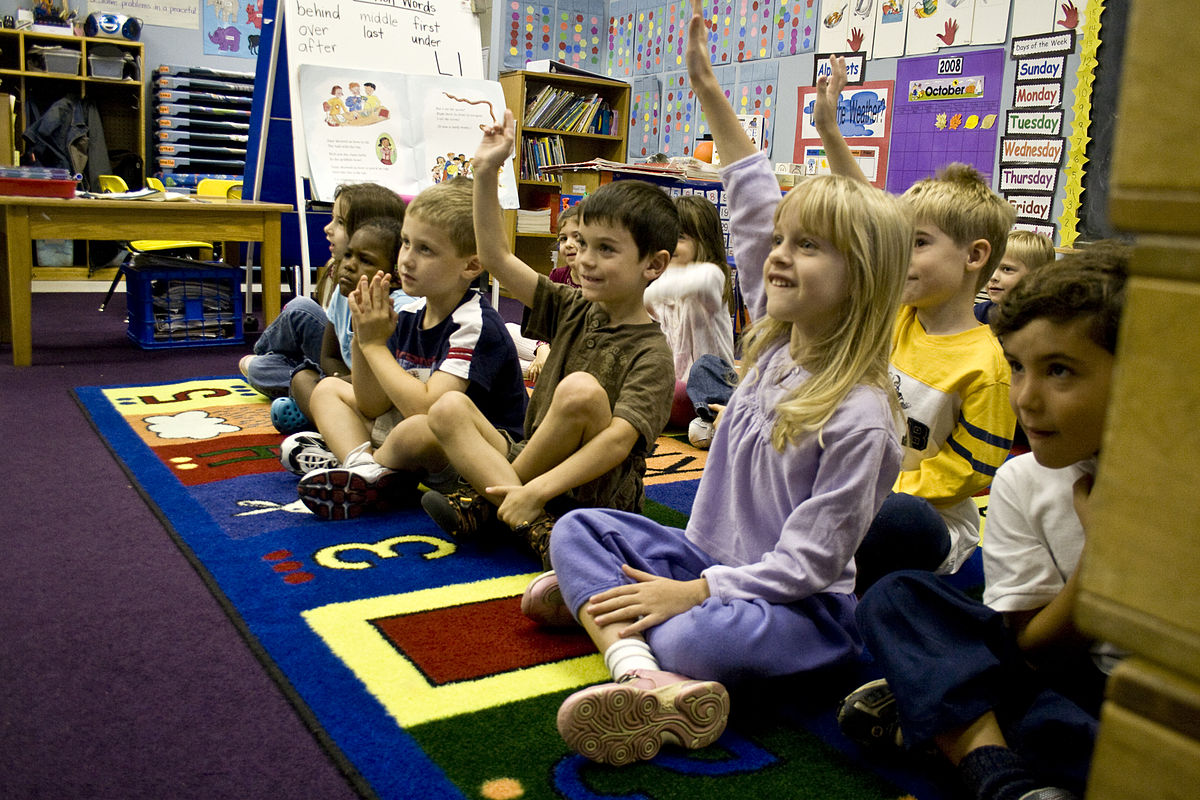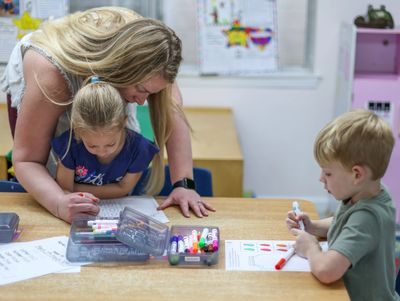How Kindergarten activities support early learning and social skills
Wiki Article
Everything About Grade Institution: Essential Facts and Improving Experiences for Young Learners
Grade institution plays an essential role fit young learners' futures. It includes crucial scholastic topics and nurtures social abilities through structured interactions. Furthermore, after-school activities supply chances for creativity and synergy. Adult participation better boosts this foundation, supporting youngsters in their scholastic journeys. As these elements link, they create a detailed educational experience. Nonetheless, what specific strategies can teachers and parents use to maximize this growth?
Understanding the Quality School Educational Program
As pupils start their grade institution journey, they run into an educational program made to construct foundational abilities and expertise throughout various topics. This curriculum typically includes core areas such as mathematics, language arts, scientific research, and social studies. Each subject is structured to cultivate essential reasoning, creative thinking, and problem-solving capabilities, vital for future scholastic success.Language arts focus on analysis, writing, and communication skills, cultivating pupils' ability to reveal themselves clearly. Math presents basic ideas, consisting of enhancement, reduction, and later, multiplication and department, preparing for more complicated analytic. Science encourages inquiry and exploration, sparking inquisitiveness regarding the environment, while social researches instills an understanding of neighborhood and multiculturalism.
Along with core subjects, the curriculum often includes arts and athletics, giving a well-rounded instructional experience that promotes both intellectual and physical development. Grade institution serves as a crucial system for long-lasting discovering.
The Framework of Elementary School Education
While elementary school education differs by area and establishment, it normally adheres to a structured framework that advertises modern learning. Usually, quality college includes a series of qualities, frequently from kindergarten through 6th or fifth grade, relying on the instructional system. Each quality level represents particular developing landmarks, with educational program developed to build on anticipation.Courses are usually arranged into core topics, including maths, language arts, scientific research, and social studies, making sure that pupils receive a versatile education and learning. Direction commonly combines direct training with hands-on tasks, fostering involvement and important thinking.

Assessment methods differ but generally consist of examinations, quizzes, and jobs to review trainee understanding. In addition, educators frequently collaborate to produce interdisciplinary units, improving the finding out experience. Overall, the structure of quality school education aims to grow foundational abilities, prepare students for future academic difficulties, and promote a love for finding out that extends past the classroom.
Social Skills Development in Early Learners
Quality institution education not only concentrates on scholastic skills but also plays a substantial duty in the growth of social skills among very early students. During these formative years, youngsters take part in numerous tasks that encourage communication, partnership, and interaction with peers. Team tasks and cooperative learning setups supply opportunities for kids to exercise sharing, discussing, and solving conflicts.Structured playtime promotes essential skills like compassion and understanding, as youngsters discover to acknowledge and react to the sensations of others. With directed social interactions, educators help trainees create essential listening and conversational skills. As youngsters browse relationships and group characteristics, they get self-confidence in their social capacities.
The Function of After-school Activities
After-school activities play a considerable function in improving the instructional experience of grade institution students by giving avenues for personal growth beyond the class. These tasks enable trainees to discover skills and rate of interests, fostering creativity and self-expression. Engagement in sports, songs, art, and clubs grows synergy, management skills, and a feeling of belonging.Furthermore, participating in such activities advertises physical wellness and wellness, urging students to keep an active way of life. Private click here for more info School. Extracurricular programs additionally function as a platform for trainees to build relationships and develop social abilities, which are crucial for their total growth
As students browse their interests beyond academics, they obtain important experiences that add to their self-confidence and strength. Eventually, these tasks play a critical duty in forming all-round people, preparing them for future obstacles both in and out of the classroom.
Supporting Knowing With Adult Participation
Parental participation considerably improves the academic journey of quality institution students, as it cultivates a supportive environment that enhances knowing. Involved moms and dads add to their kids's academic success by going to college events, assisting with homework, and preserving open interaction with teachers. Private Grade School Peoria. This involvement not only increases trainees' motivation but also cultivates a sense of belonging and self-esteemResearch indicates that children whose moms and dads are actively included tend to have greater qualities, better presence, and improved habits in institution. In addition, parental interaction motivates the development of vital life abilities, such as time administration and duty.
Institutions can facilitate this involvement by organizing workshops, giving sources, and encouraging normal responses. By developing partnerships in between educators and parents, quality colleges can ensure a comprehensive strategy to student advancement. Inevitably, parental participation acts as a cornerstone for cultivating a favorable educational experience, benefiting both trainees and the school community as a whole.
Often Asked Questions
What Are the Normal Grade College Hours for Trainees?
Regular elementary school hours for students generally range from 8:00 AM to 3:00 PM, varying by area. Several schools include a lunch break and recess, ensuring trainees have time to charge throughout the day.Just How Do Grade Schools Address Diverse Knowing Needs?
Elementary school address varied learning requirements with set apart guideline, tailored lesson plans, and support services, ensuring all trainees receive proper resources. Educators collaborate with experts to create comprehensive settings that foster individual growth and engagement.What Is the Function of Innovation in Quality College Education?
Innovation in elementary school education and learning enhances finding Recommended Site out with interactive tools, individualized browse around here finding out experiences, and accessibility to huge sources. It fosters collaboration among students and educators, preparing kids for a technology-driven future while sustaining diverse instructional needs.How Can Parents Assist With Homework Properly?
Moms and dads can aid with homework successfully by creating a structured environment, motivating self-reliance, providing sources, and offering support without directly providing responses. Communication with instructors also enhances understanding of assumptions and promotes academic success.What Are Common Obstacles Encountered by Quality School Trainees?
Typical challenges dealt with by elementary school pupils include difficulty with time administration, recognizing intricate concepts, keeping focus throughout lessons, navigating social dynamics, and stabilizing scholastic obligations with extracurricular tasks, all of which can affect their total performance.As students start their grade school trip, they experience a curriculum developed to develop foundational skills and expertise across numerous topics. Generally, quality college incorporates an array of grades, frequently from preschool with 5th or 6th quality, depending on the educational system. Extracurricular tasks play a considerable duty in boosting the instructional experience of quality college pupils by giving methods for personal development beyond the classroom. Parental participation greatly enhances the academic trip of grade school pupils, as it promotes an encouraging atmosphere that reinforces understanding. By developing partnerships in between teachers and parents, quality colleges can assure a complete strategy to pupil development.
Report this wiki page